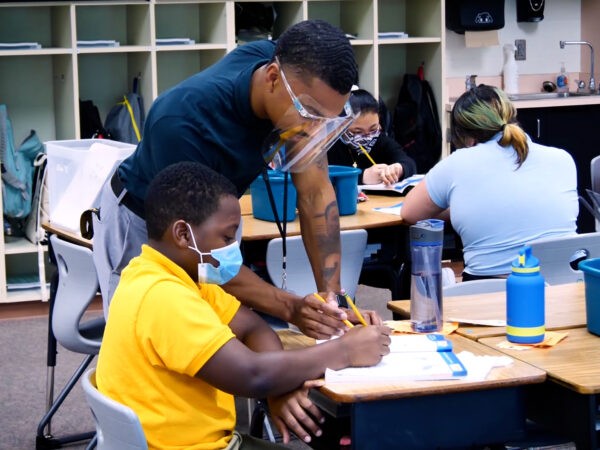Teacher quality is an important driver of student success, but many emerging educators lack practice in teaching within a K-12 classroom environment. Black and Hispanic/Latino individuals are also underrepresented among educators and school leaders, while racial disparities in student achievement outcomes persist.
Identifying a need to improve student outcomes and increase the diversity of Indianapolis’ educator pipeline, Marian University redesigned and transformed its college of education into the Fred S. Klipsch Educators College in 2016. The College applies international best practices to more effectively prepare high-quality teachers, while growing the supply of Black and Hispanic/Latino educators in Indianapolis.
The College works to effectively prepare students by immersing them in practice. Students begin gaining teaching experience during their first year in the program through the College’s simulation lab. The program also requires students to complete a year-long paid residency and acquire both pedagogical teaching expertise and subject-matter content knowledge. Students obtain about 250-300 clinical experience hours during their time in the College.
The Richard M. Fairbanks Foundation has awarded $2,650,000 since 2016 to support the development, start-up implementation efforts and establishment of the Fred S. Klipsch Educators College.



